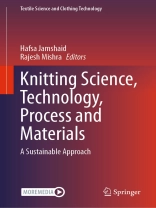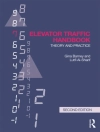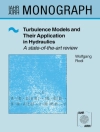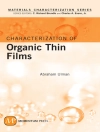This volume explains knitting technology in an easily-comprehensible and user-friendly manner. The manufacturing of a cost-effective quality product requires careful planning and thorough knowledge of the product as well as production technology. To achieve the desired functional properties in fabric, the relationship between the raw materials, process and finished product is very important. Knitting has been and remains an important textile technique due to the properties of knitted fabric such as elasticity, stretchability, and comfort. Despite the prominence of knitwear, there has been limited data regarding mechanics of weft knitted fabric and effect of structures on physical, mechanical and comfort properties. This book is an attempt to fill that gap. The book provides knowledge about fabric manufacturing techniques, weft knitting structure, and methods of evaluating knitted fabrics and their applications in technical textiles. It also discusses different types of yarn and their manufacturing processes. Testing and quality control in industrial practice as well as management of a fabric dyeing house are also covered.
Table of Content
Chapter 1.- Introduction: Knitting Fundamentals. Chapter 2.- Yarns in Knitting. Chapter 3.- Weft Knitting Machines. Chapter 4.- Weft knitted structure and their effect on fabric properties. Chapter 5.- Mechanics of weft knitted structure. Chapter 6.- Knitwear Dyeing; Theory and Sustainability. Chapter 7.- Textile testing and quality control in knitting. Chapter 8.- Technical Applications of Knitted Fabrics.
About the author
Prof. Hafsa Jamshaid works at National Textile University, Faisalabad, Pakistan. She is an experienced textile professional in the field of weaving, knitting technologies for technical fabrics and composites Her research papers are published in many reputed journals with impact factor. She has authored several chapters in book on technical textile applications She presented around 100 presentations in international conferences. Her teaching and research include subject based on fabric structures sustainability, textile quality characterization etc. She is awarded Fellowship from Textile Institute, Manchester, United Kingdom. She has educational and research cooperation around the globe. At present she is involved with different universities and industries for continuing research in technical applications.
Prof. Rajesh Mishra works at the Czech University of Life Sciences Prague, Czech Republic. His research areas are nanomaterials and nano-textiles, textile structural composites, green composites, nanocomposites, biomechanical engineering of fibrous structures, thermo-mechanical characterization of materials etc. He has about 206 publications in international journals and about 320 presentations in international conferences. His teaching and research activities include subjects based on nanotechnology, biomaterials, structural mechanics of fibrous structures in general and 3D woven structures in particular, textile quality characterization, engineering of textile structures, biomechanics of apparel textiles etc. He is responsible for internationals students education and research at the faculty of engineering. Till date he has successfully guided 7 Ph D candidates leading to award of title. The graduates are highly placed in academia and industry around the world. At present a few more are continuing research in leading areas of technology. He has educational and research cooperation around the globe.












